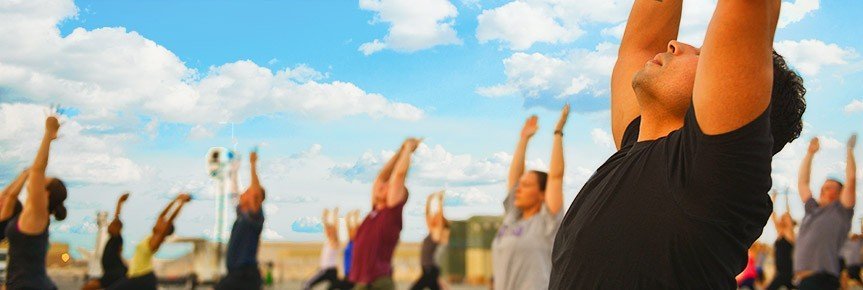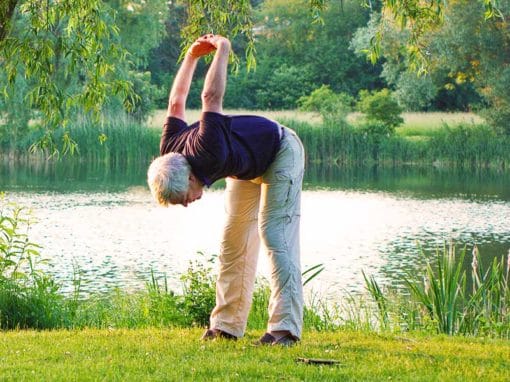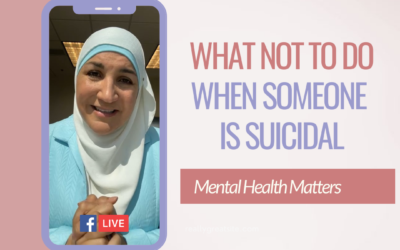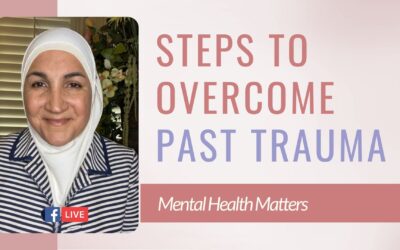Everyday life is full of stressors and things that provoke anxiety in us. From having to report to work, to having to get there on time, to traffic, to having to pay bills on time, etc. Anxiety can also be from performance jitters, which can keep us up at night, be it a stage performance, or an upcoming exam or an interview or a speech.
Normally this anxiety comes and goes which is supposed to happen. The problem arises when anxiety doesn’t go! This is too much anxiety. On the opposite extreme, people don’t want ANY anxiety at all. All of us are supposed to feel some anxiety, at some time, for some reason in our lives. Can you imagine not feeling anything when you are face-to-face with an angry mob, or you see a group of up-to-no-good kids hanging around? The anxiety you may feel could save your life.
Get Help For Anxiety
At Psychiatry.Live, we recommend seeking out a therapist, psychiatrist or other professional to help you with your excess anxiety. There are, however, a number of non-medicinal ways to help you when you feel too much of it. Some of the benefits include getting better sleep and helping to reduce the muscle tension you feel when you are really anxious. We’ll start talking about some of those ways in this and some upcoming posts.
Meditation can help you better manage anxiety. There so many ways to meditate including prayer, deep breathing, patterned breathing like Dr. Andrew Weil’s 4-7-8, Transcendental Meditation and Yoga.
Yoga: What’s it??
Yoga originated in the 6th and 5th centuries BC in India, and was a form of worship, which is why many contemporary clergy take issue with it. In modern times however yoga has become more of an exercise and treatment tool for healing anything from physical ailments, to psychological disorders. Yoga includes both physical postures and movements, which promote physical strength, balance and toning, as well as breathing exercises and mantras.
Mantras are short phrases or words which are repeated over and over again to help with focus. Any mantra would serve the exact same purpose and you can replace the original Hindu mantras if you feel more comfortable, with your own religious or non-religious mantra, and still see the same benefits. All three of these together, physical postures, breathing, and mantras have been found to be excellent forms of meditation even when done separately.
Yoga can help you in many ways.
Self-Confidence from Yoga
Low self-esteem and low self-confidence, as you can imagine, can lead to lots of anxiety and nervousness. These jitters, however, aren’t related to your ability to perform, but rather “what are they gonna say or think about me?” “What if I mess up completely?? OMG!”
It turns out that getting good at yoga, and being able to perform the exercises helps you get physically stronger and psychologically more calm. Because breathing techniques are also part of yoga, you know that just before going on stage you can use breathing to help you calm your nerves. With this external strength and internal calmness, you can imagine feeling more confident.
Negative Thought Loops, Yoga Helps
“I’m going to get up there and say something dumb, I know it…then they’re gonna laugh at me…then my ears are gonna start getting hot…I’m gonna start sweating and start dripping like a faucet…they’re gonna laugh more….and I’m just gonna faint from embarrassment!!!”
Recognize any of this sort of thought process? It feels like it’s out of control, your mind is just automatic, like it’s on autopilot! Wouldn’t it be so cool if you had new skill which helps you break this cycle of “automatic thoughts?”
Yoga, with its breathing techniques and mantras, helps you refocus your mind on one single thing, either the breathing or the mantra. This is an AMAZING skill to have in your back pocket. During yoga, when your mind wanders to your automatic thoughts, your job is to gently bring it back to where you want it to be, without getting angry at yourself for straying. Imagine being able to do that just before a performance?
Your Own Therapist to Go With You
Do you wish you could take your therapist with you wherever you go? Practicing yoga and other forms of meditation will teach you many of the same principles that your therapist wants you to use. Techniques such as breathing, focusing your mind, breaking automatic thoughts and exercise, not to mention meditation itself!
Also, practicing these types of exercises teaches you not to judge yourself, or become angry with yourself. It teaches you to acknowledge and observe the thoughts you are having, and help you grow in your ability to drop the negative but keep the positive ones. Yoga also helps you focus on the positive things in life. Surrounding yourself with positivity will help you ignore your own negativity and avoid negative, “downer” people.
Do you have anxiety? At Psychiatry.Live, we want you to be able to address your anxiety whether you prefer medication, meditation, diet or all of the above. Contact us to set up an appointment today.









0 Comments